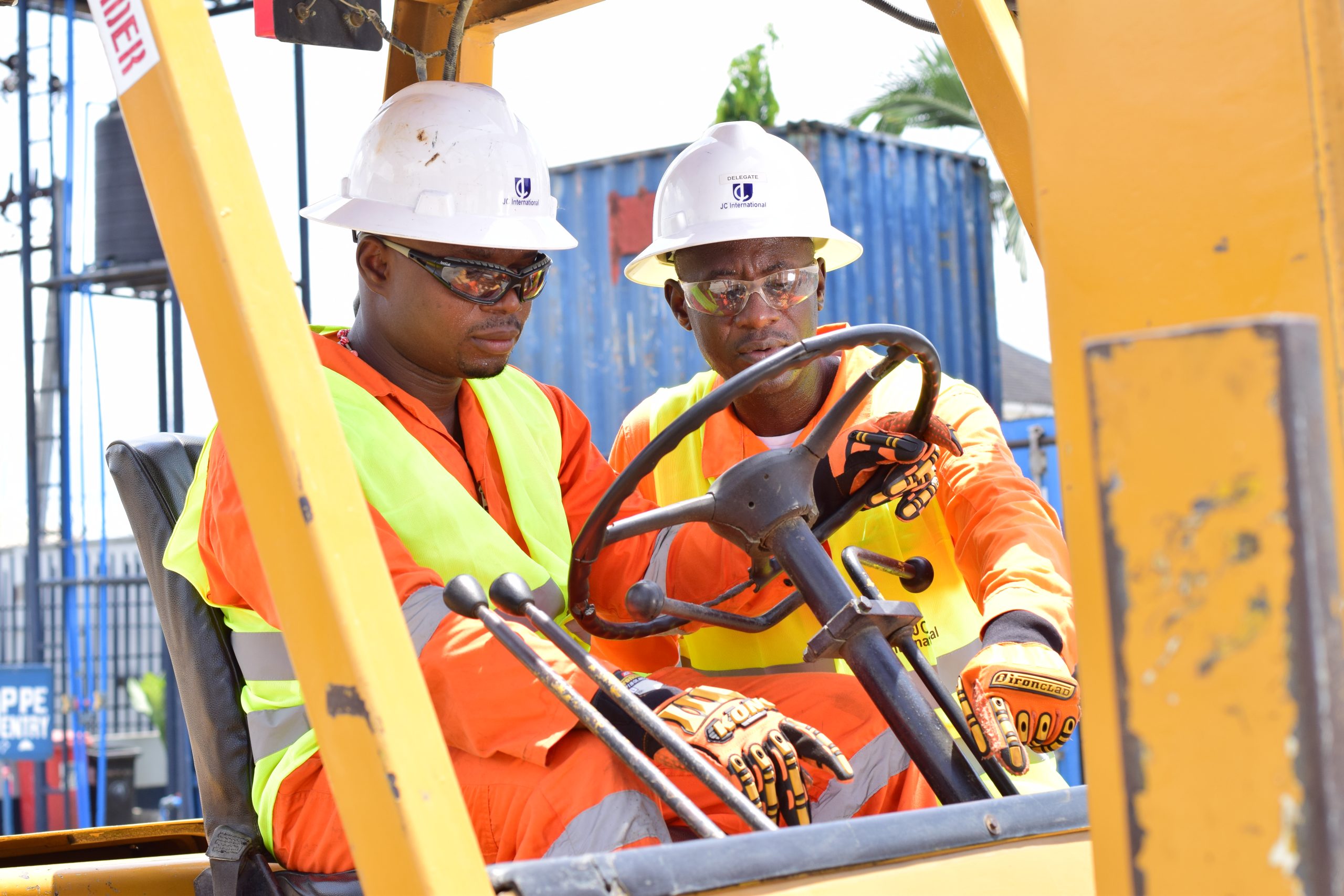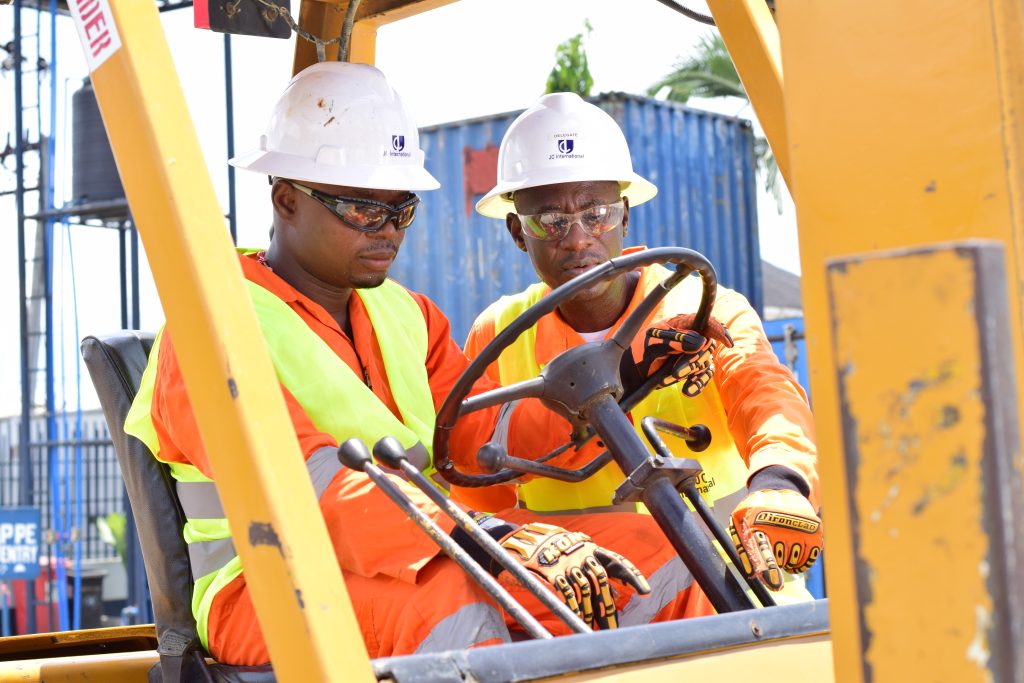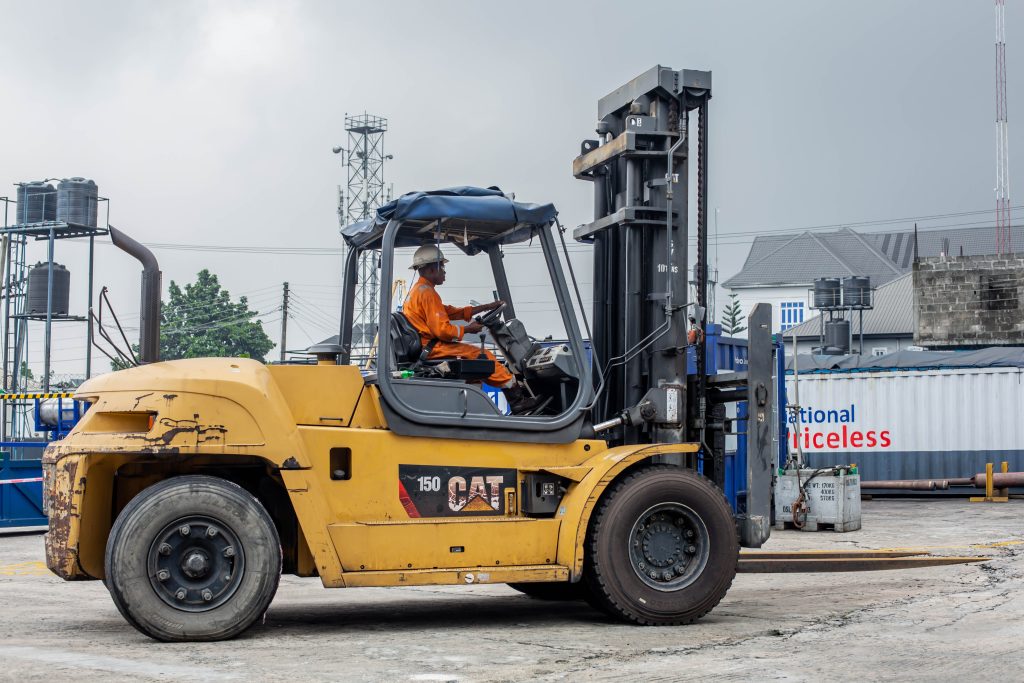
Everything you need to know about Forklift Operation Training.

Operating a forklift may seem easy, but it requires skill, precision, and a thorough understanding of safety protocols. Forklift certification and training are essential components for ensuring the safety and efficiency of your operations.
Things you need to know about getting certified and trained to operate a forklift.
1. There are various types of forklifts:
Forklifts come in various types, each designed for specific tasks and environments. Understanding the different types can help you choose the right forklift for your needs and ensure that operators are properly trained. The following are some types of forklifts;
A. Counterbalance Forklifts
The most common type of forklift, these are designed with forks at the front and a weight at the back to balance the load. They are versatile and used in a wide range of settings, from warehouses to outdoor storage yards.
B. Reach Trucks:
Ideal for narrow aisles and high shelves, reach trucks have extended lifting capabilities and are commonly used in warehouses and distribution centers.
C. Pallet Jacks:
Also known as pallet trucks, these are smaller forklifts used to move pallets within warehouses. They come in manual and electric versions and are ideal for low-level lifting tasks.
D. Telehandlers:
Also known as telescopic forklifts, these have a boom that extends forward and upward, making them perfect for construction sites and agricultural use. They can lift loads to great heights and over obstacles.
E. Order Pickers:
These are used for picking individual items from shelves in warehouses. They allow operators to be lifted along with the load, making it easier to pick items from high shelves.
F. Rough Terrain Forklifts:
Designed for outdoor use, these forklifts have large, rugged tires and a powerful engine to navigate uneven surfaces. They are commonly used in construction sites and lumber yards.
2. The Usage of Forklifts:
Forklifts are versatile machines used in various industries for different purposes. Forklifts are used for the following among others;
A. Warehousing and Distribution:
Forklifts are essential in warehouses for moving, stacking, and organizing goods. They streamline operations and increase efficiency.
B. Construction:
On construction sites, forklifts transport heavy materials like bricks, steel beams, and construction equipment. Telehandlers are particularly useful in this setting.
C. Manufacturing:
In manufacturing plants, forklifts move raw materials to production lines and finished products to storage or shipping areas.
D. Agriculture:
Forklifts help in handling agricultural products, such as bales of hay, pallets of produce, and farm equipment.
E. Retail:
Large retail stores and home improvement centers use forklifts to manage inventory, restock shelves, and move bulky items.
F. Recycling and Waste Management:
Forklifts are used to handle recyclable materials and waste products, improving efficiency in recycling centers and waste management facilities.

Forklift Certification:
Certification is essential for anyone looking to operate a forklift. It serves as a formal validation of the operator’s competence, demonstrating that they have undergone the necessary training and assessment. This certification ensures the operator has met all requirements and is deemed fit to safely and efficiently operate a forklift.
Are you considering a career as a forklift operator?
JC international offers a comprehensive forklift training in Lagos and Port Harcourt, Nigeria. Our program equips you with the practical knowledge and skills you need to operate a forklift safely and efficiently.
Contact us to get started.

Leave a Reply